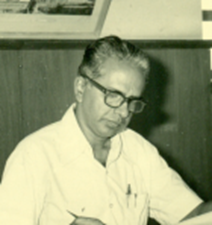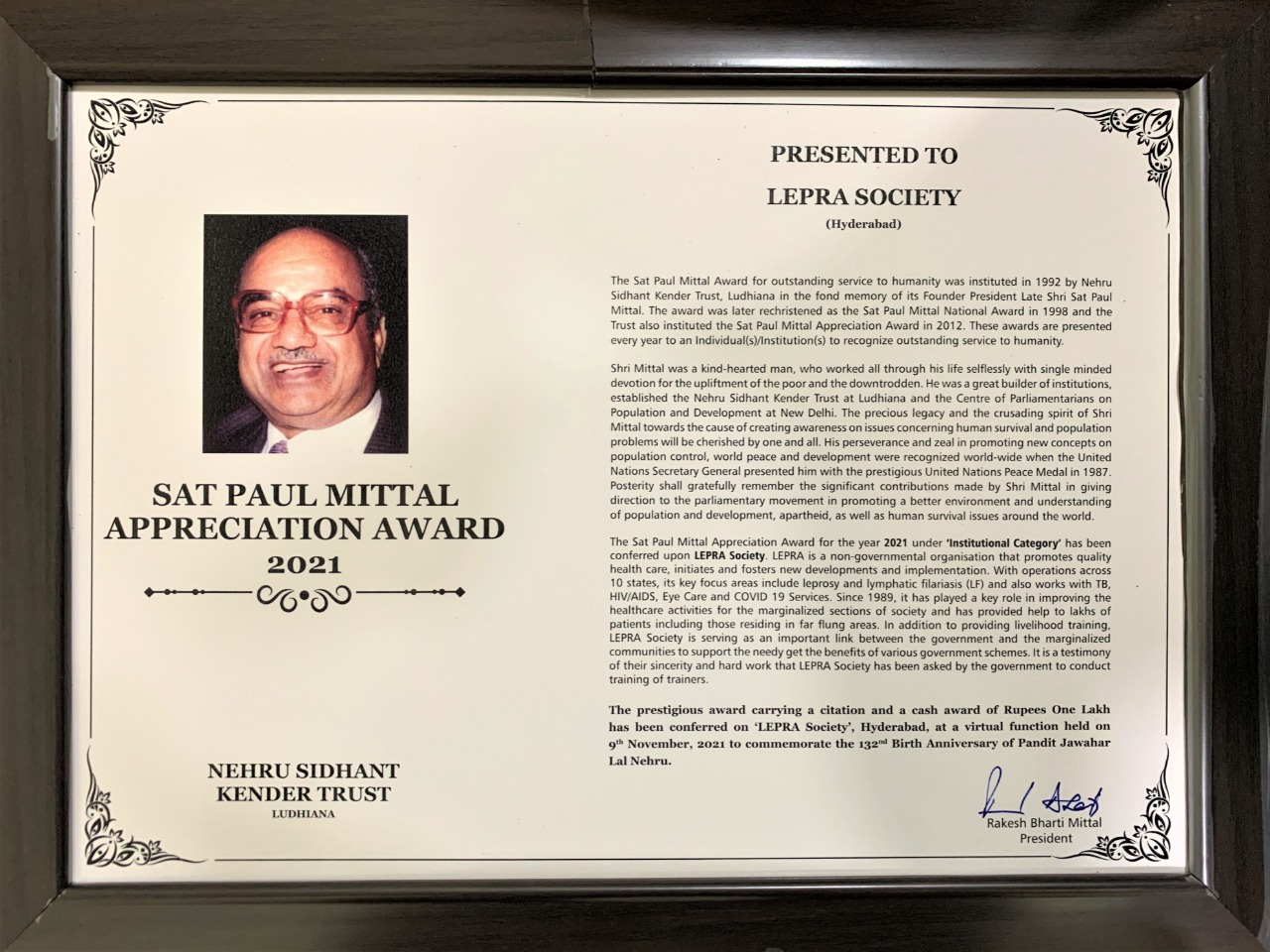About K.V. Desikan
 Dr K.V. Desikan, formerly Director of the Central JALMA Institute for Leprosy, Agra, and subsequently, Chairman of LEPRA India, was a legend in the field of leprosy. He passed away on 23rd October, 2022, at the age of 96. In a career spanning more than 60 years, he played multiple professional roles, that of a doctor, a field worker, an epidemiologist, a researcher, a much respected mentor and scientist and an administrator.
Dr K.V. Desikan, formerly Director of the Central JALMA Institute for Leprosy, Agra, and subsequently, Chairman of LEPRA India, was a legend in the field of leprosy. He passed away on 23rd October, 2022, at the age of 96. In a career spanning more than 60 years, he played multiple professional roles, that of a doctor, a field worker, an epidemiologist, a researcher, a much respected mentor and scientist and an administrator.
His field work began through the Gandhi Memorial leprosy Foundation (GMLF), when he spearheaded a leprosy control initiative in 35 villages in and around Wardha, Maharashtra. Starting in 1952, he repeatedly examined more than 30 000 individuals in these villages, and diagnosed nearly 550 with leprosy. It was the world’s first survey, education and treatment (SET) programme for diagnosis and management of leprosy. The Government of India eventually started the National Leprosy Control Programme (NLCP) in 1955 and the SET method became the standard procedure for leprosy control in the country. Later endorsed by the WHO, the method was implemented worldwide. Subsequently, through the Chilakalapalle unit of GMLF in Shrikakulam (presently Vijayanagaram) district, a semi-tribal area of Andhra Pradesh, he treated nearly 15 000 leprosy patients. Furthermore, he provided voluntary services in many villages beyond the purview of the unit.
At the age of 36 years, in 1962, he enrolled for a postgraduate degree in pathology at the Christian Medical College in Vellore, and carried out the largest series of autopsy studies on leprosy patients there. In 1967, he joined the Central Leprosy Teaching and Research Centre at Chingleput (now Chengalapattu), near Madras (Chennai). During his tenure there, he pioneered studies with mouse footpad experiments to further understand the pathogenesis of leprosy.
In 1976, he took charge as Director of JALMA, Agra. Soon, the institute earned a name for outstanding clinical work and research, and found a place on the national and international map. Retiring from JALMA in 1987, he came back to Sevagram, Wardha. With the help of LEPRA, the British Leprosy Relief Association, he set up a leprosy histopathology laboratory in the Mahatma Gandhi Institute of Medical Sciences (MGIMS), Sewagram to provide free services. He was the first Chairman of LEPRA India, headquartered in Secunderabad, till he stepped down in 2003. During that period, he steered LEPRA India through many leprosy control activities in Andhra Pradesh and tribal areas of Koraput, Orissa. Some years later, he moved to Bhopal to be with his daughter, and continued providing voluntary services to leprosy patients and handicapped children till he was ninety.
Dr Desikan generated a wealth of evidence in over 150 publications, which is acknowledged with the respect that it deserves. His work encompassed the entire spectrum of leprosy: descriptive epidemiology, diagnostics, histopathology, immunology, physiology, therapy and simple clinical observations.
About the Award
The K.V. Desikan Memorial Award is an annual award which is being instituted with an aim to recognize the contribution and efforts of individuals/institutions who embody similar values as Dr. K.V. Desikan in their work in the field of infectious disease control, in community health/development/rehabilitation, and/or the laboratory sciences. Among the infectious diseases, preference is sought to be given to the field of leprosy.
Every year, the award will honour one individual, an organization or organizations with:
- A plaque
- A citation
- A cash prize of Rs 1 lakh
The recipient of the award will be awarded on the foundation day of LEPRA India, the 23rd of February, every year, from 2024
Eligibility criteria:
- The award will be given to a person or persons, an organization or organizations having accomplished notable work in the field of infectious diseases, in community health/development/rehabilitation, and/or the laboratory sciences. Preference will be given to work in the field of leprosy.
- The award aims to recognize those who go beyond the call of normal duties; it is not intended as a reward for performance of duties normally expected of an individual in a particular position / an organisation in fulfilling its mandate.
- The following criteria will be applied in the assessment of the work done by the candidate/candidates:
-
- Contribution to address a felt need in diagnosis/management/rehabilitation of individuals with infectious diseases
- Intimate and direct connection with the efforts and achievements in a given area and must have the possibility of remaining involved in the further development of this work
- Efforts made / potential to reach socially and geographically disadvantaged population groups
- Impact of the work in community health/development/rehabilitation
- Sustainability of the work
Procedures
- The selection of the recipient of the award will be through a search and selection panel. The panel may actively search for appropriate recipients, or can choose from applications and nominations.
- In case of applications/nominations, to facilitate the assessment of the work done and the accomplishments, the most recent and pertinent documentation directly related to the work should be submitted along with the application/ nomination. Such materials should illustrate clearly the nature of work carried out, the results achieved, the difficulties and obstacles encountered, and the solutions proposed and implemented; they need not necessarily have been published in a scientific or other journal.
- If more than one candidate is considered eligible by the panel in a particular award year and selected to receive the award, the cash prize will be proportionately distributed between them
- These criteria / procedures will be reviewed and updated periodically as considered appropriate.

